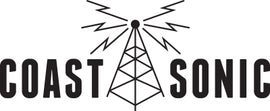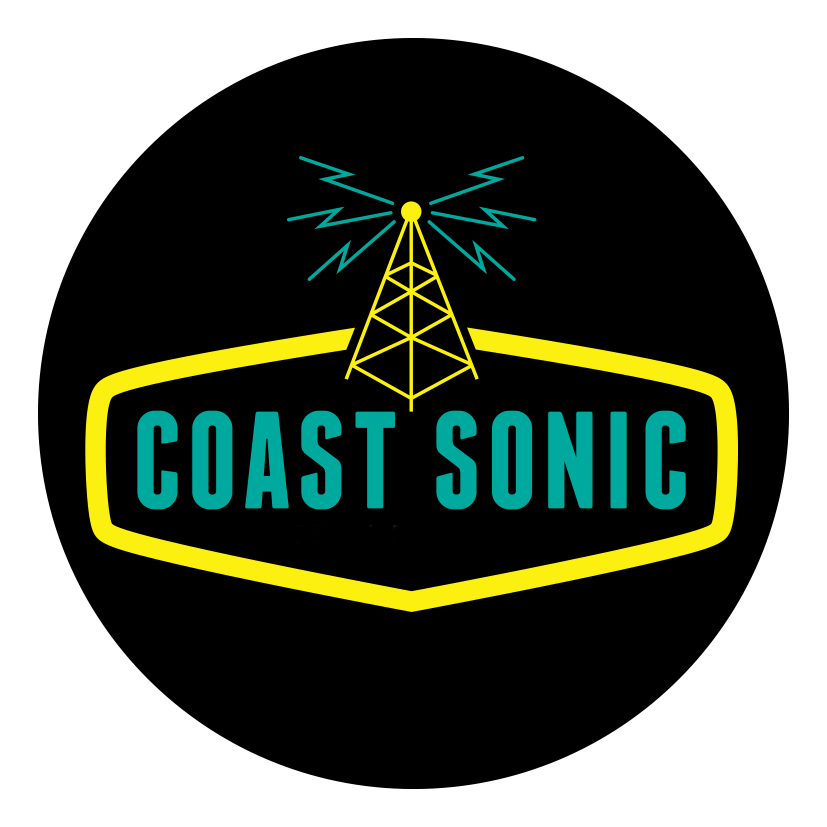
There are a few key elements we are trying to represent with the brands we carry via Coast Sonic; passion and hand made quality are the two most prominent. Epigaze Audio is a fairly new brand to the pedal building world but their offerings check off both of those boxes perfectly. With the just released Custom Shop Singularity Fuzz currently turning heads we sought out Epigaze's Josh Alley to dig in a little deeper to where things started, what drives the brand and what we can expect in the future.
Coast Sonic: Thanks for taking the time to talk with us Josh, can we start with your telling us about how you first discovered the guitar?
Josh Alley: When I was 12 I really started to take more notice of music, and started to obsess over everything I listened to. After finding some old LPs in the garage over the summers I was big into Kiss, Judas Priest, Aerosmith, Motley Crue, and Black Sabbath. I didn’t exactly want to play guitar until I watched Motley Crue’s Uncensored VHS. One of the first videos to play was Live Wire and I was just in awe of the whole thing. Mick had this killer sound and I was glued to the TV. I wasn’t the same after that.

CS: And as far as the electronics side of things, how did that pop into your life?
JA: The first instance I can remember was sometime in middle school. I was in a technology class and in one of those school fairs there was a build it yourself robotic rover. It was this little car that when it was in the dark would roll around and it would detect when it was going to hit something and go a different way. Around the same time I had bought a “strength test” kit that had two copper pads for you to place your fingers and it was hooked up to a 9v battery. The higher you turned it up then the more it “shocked” you.
CS: At what point did these two interests, guitar and electronics converge?
JS: After I started playing and messing with my guitar’s wiring I thought about how it would be cool to make pedals, but it was never much more than a thought. Years later I had started using more pedals and started to tinker with mods, particularly on a beat up wah I had acquired that didn’t quite sound right. Summer of 2013 was when I really started to pursue the idea and started to develop what became Epigaze.
CS: So your electronics background is more of a hands-on type learning situation as opposed to schooled right? Trial by fire so to speak?
JA: Yes. I went to college for graphic design. All of my electronics know-how was something I did on my own time. I’ve always looked at it this way and it may or may not be a good example. There are guys who build pedals and really know their stuff when it comes to electronics and have engineering degrees and what not. Those guys to me are like the virtuosos of electronics, the Joe Satriani’s and Steve Vai’s. On the other end there are guys like me who are like, "what happens when I take these components and put them here, and take these out and put these in.” I feel like we are the Ace Frehley’s of the group.

CS: The graphic design background really explains why the Epigaze line looks as great as it sounds. What would you say is your vision for Epigaze Audio as a company?
JA: When I was in the development stages before I even thought of the guitar pedal side of things Epigaze was going to be a limited edition clothing line for my design work, ha. That idea obviously was canned but only a short time later I really started to think about the pedal business and the Epigaze name was perfect.

I have a lot of interest in the universe and anything related to space and space exploration. I spent awhile developing the concept for the logo. The half circle symbolizes the earth. The triangle that extends below the circle symbolizes the ocean, and the triangle opposite of that represents land. The triangle in the center represents the human species and rise from nothing. The lines or rays within the circle represent the human need to understand their environment. The four rays that extend beyond the circle (earth) represent our thirst for knowledge and curiosity. For every two "rays" we send out, we receive two in return from the universe.
All of my products are envisioned as a whole from the beginning. The name and graphics of a product for me are just as important as how the pedal will sound. I’ve shelved many ideas that are probably great ideas, but I wasn’t getting anywhere with the graphics and/or it just wasn’t blending together like it should. Basically, when someone buys an Epigaze product I really want them to be able to connect with, and feel what it is about and where it comes from. That is part of the reason every product card gives a small description of where the name/graphics originated from.
When it comes to the sound of pedal I like to keep things simple. Personally I don’t like too many options on a pedal. This is why you have a choice between an Earthrise VIII or an Earthrise XI. If you are like me like it simple then an VIII is probably better for you, but if you like a little more versatility/options then the XI is more for you. I wanted Epigaze to deliver stunning graphics and great sounding pedals built with quality components and hand wired craftsmanship. I’m very happy with how the business has come together and the response it has gained.
CS: With a few overdrive and fuzz styles in the current line-up is it safe to say dirt pedals are a favorite type for you?
JA: Yes! Personally I have typically kept smaller pedals boards, so dirt pedals were my first choice. For many years I was a "guitar to amp” kind of guy but would still use dirt to boost. Earthrise VIII was the first one because for me being a hard rock player, it doesn’t get any better than that pedal into a cranked amp. Later on I wanted to offer some other classic drive tones and that led to the addition of the Singularity MKII. There are some things up my sleeve for 2015 to expand on what is offered currently. Many people are itching to get their hands on the Monoceros 838 Echo, which I‘ve been hyping about through out the prototype phase on IG.

CS: That brings us along to why we’re talking today; you’ve just released the Custom Shop version of your Singularity Fuzz. Can you tell us about the singularity and what you have expanded on in the Custom Shop version?
JA: The Custom Shop version came about while I was building some standard Singularity units. I typically setup the bias for a nice smooth tone, but I was playing with it one day I was getting some cool settings and I told myself, "I should build another version of this". I took the bias controls to the exterior so the user can set it how they want. So many options become available: smooth and octavia-esque tones, gated and splatty, and even a dirty boost. It is the perfect addition for the player who likes to tweak. I wanted to have slightly different aesthetics from the standard Custom Shop line which is why it has black aluminum knobs instead of my standard plastics.
CS: We're really loving the ability to customize and dial in the exact tone you might be hearing in your head. It makes for endless tone possibilities not to mention hours of fun. Do you see exploring this kind of tweak-ability with other pedals?
JA: I can say that I didn't get much done the night I made the first Custom Shop Singularity. I "tested" it for a long time, haha. Yes, I have ideas to build upon under the "Custom Shop" banner that should cure that tweaking itch that some players yearn for, so you can count on seeing more in the future.

CS: Where do you see Epigaze headed and can you give us any glimpse into things you have planned for 2015?
JA: You will definitely see more from Epigaze in 2015. There are a few releases slated for early in the year. Some I have hinted about before (**supercluster**) and some that are still top secret so to speak. I have more special edition projects that will be sure to turn heads that I'm really excited about as well. 2015 should be a fun year!
CS: Thanks Josh!
Be sure and check out the Custom Shop Singularity Fuzz Now available on CoastSonic.com


